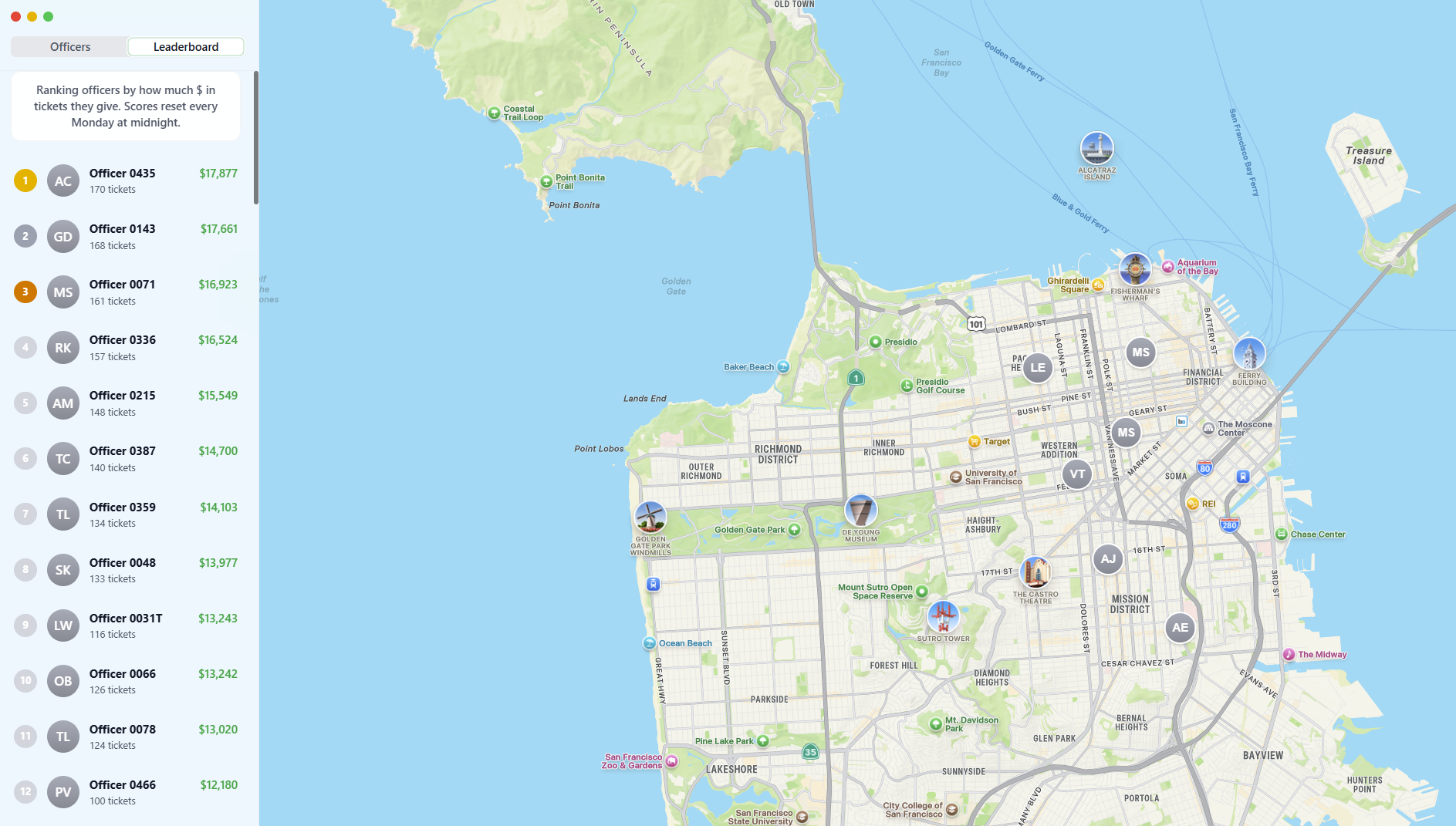With “Find My Parking Cops,” technologist Riley Walz reverse engineered San Francisco’s parking ticket system to place cops on a map seconds after they issue parking citations—in theory, helping people avoid spots where officers are handing out tickets.
“I can see every ticket seconds after it's written,” Walz wrote on X. So I made a website. Find My Friends? AVOID THE PARKING COPS.”
On the Find My Parking Cops site, visitors can see a map of San Francisco with pins locating parking cops, as well as lines tracking their shift routes, how much money they’ve fined people during their shifts, and for what violation the tickets are cited. Most are “street cleaning” violations, where someone didn’t move their car on designated days. Some are for “hill parking,” a citation I, a lifelong East Coast driver, had never heard of until today, that fines parkers for failing to curb the wheels of a vehicle on a hill in a way that would prevent it from rolling. A bunch of expired meter tickets and parking in tow-away areas also pop up on Wednesday morning.
I reverse engineered the San Francisco parking ticket system. I can see every ticket seconds after it's written
— Riley Walz (@rtwlz) September 23, 2025
So I made a website. Find My Friends? AVOID THE PARKING COPS. pic.twitter.com/67MOWVMleF
The site also has a leaderboard showing the officers who fines the most each week: As of this morning, the top cop is Officer 0435, who has given out $17,877 in tickets since Monday.
Walz's site pulls public data from the San Francisco Municipal Transportation Agency (SFMTA) to make the site work. “I discovered that the city website people use to pay their tickets also includes a full copy of the citation,” he wrote on his website. “But you need to know the citation ID number, which presumably you only know if you have the ticket in your hand. I don't have a car, but my roommate does and he got a ticket recently.” He figured out that ticket numbers follow a predictable pattern. “So if an officer just wrote a ticket, I know with certainty the ID after that one will be the next ticket the same officer writes. AND, immediately after a ticket is written, it becomes available to be viewed on the city's website.” He also learned that the city has about 300 parking cops, and that they are issuing tickets with numbers in batches of 100.
“All I have to do is check the first ticket in each batch I don't have in my database,” he wrote on his site. “This approach means I only have to make a request to the city's website every few seconds. Great!”
A few hours after Walz posted the project on X, he said the city changed the way it allows people to pull that public data, and the site went down. But he found a workaround, he wrote, and it went back up. As of Wednesday morning, it's spotty, with the service showing that it was up, then back down.
SFMTA told 404 Media in a statement Tuesday evening: “Citations are a tool to ensure compliance with parking laws, which help keep our streets safe and use our limited curb space efficiently and fairly. We welcome creative uses of technology to encourage legal parking, but we also want to make sure that our employees are able to do their jobs safely, and without disruption.”
As the SF Chronicle noted, the city has recently ramped up parking citations in an effort to make up for a $322 million deficit.
Walz previously made Bop Spotter, a project where he hid a solar-powered Android phone in a box on a pole in San Francisco, set it to record audio, and had it send songs to Shazam’s API to identify what people are listening to in public. He called it “Shot Spotter for music,” referring to the gunshot detection technology.


